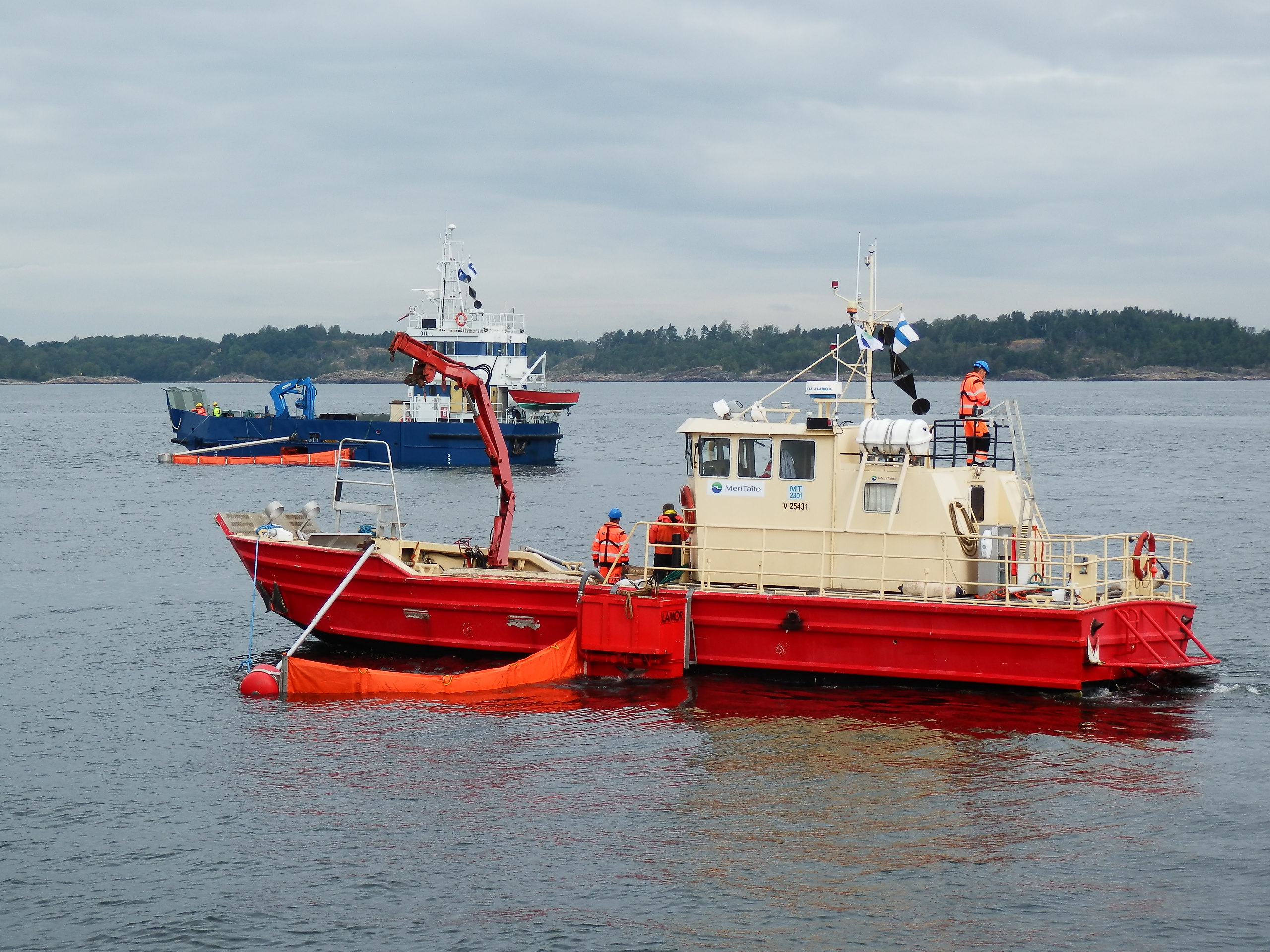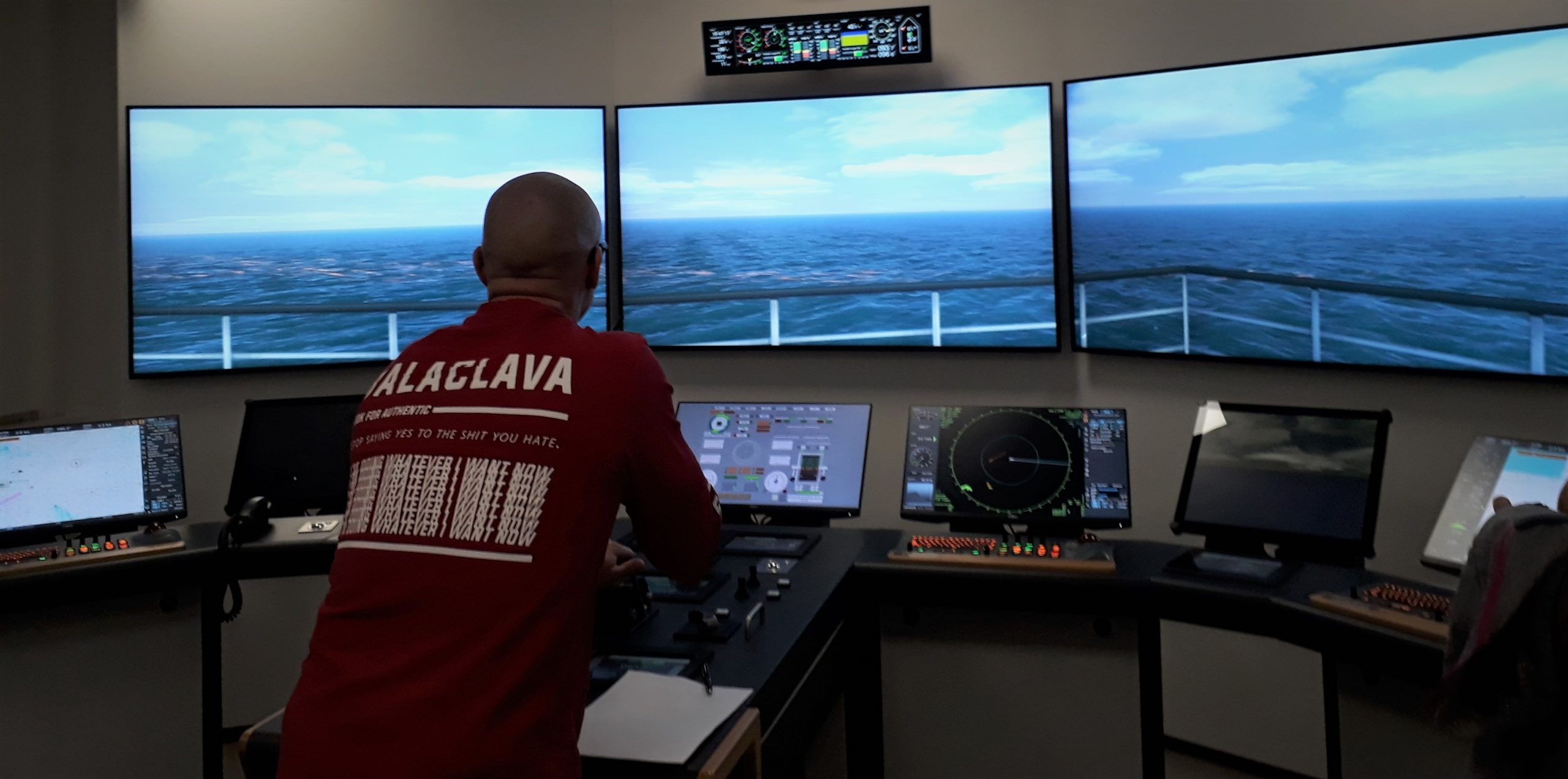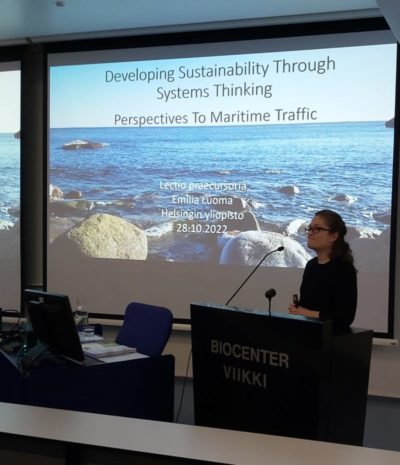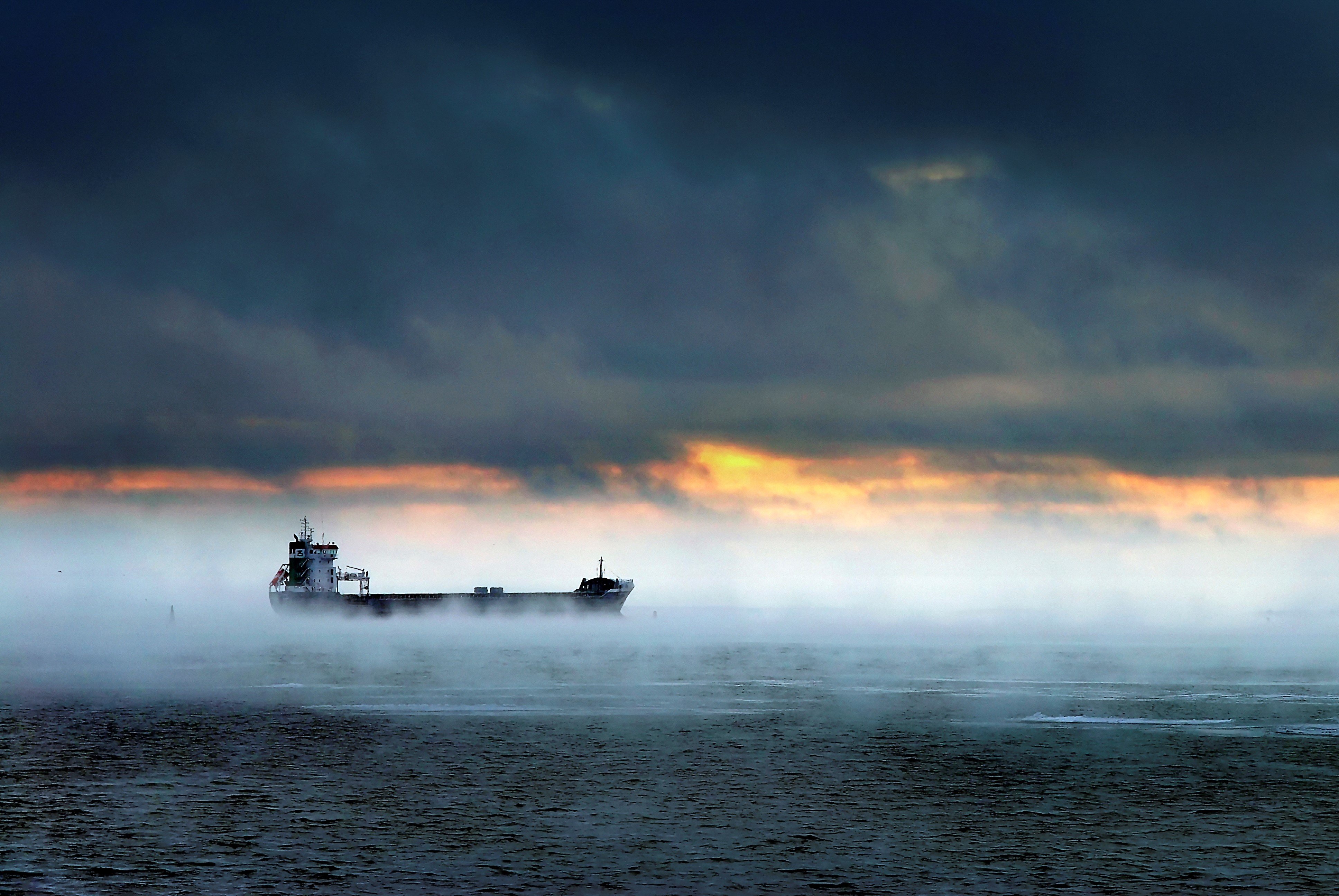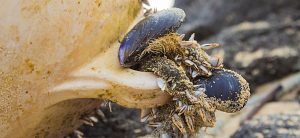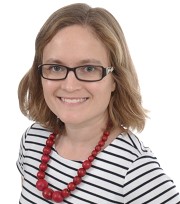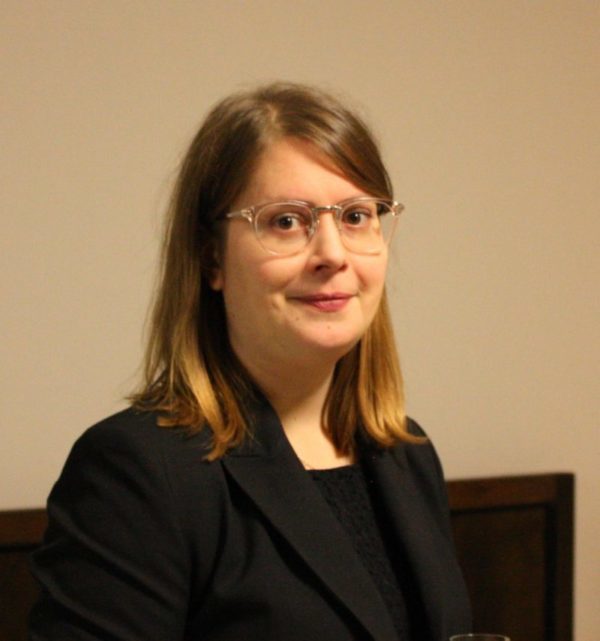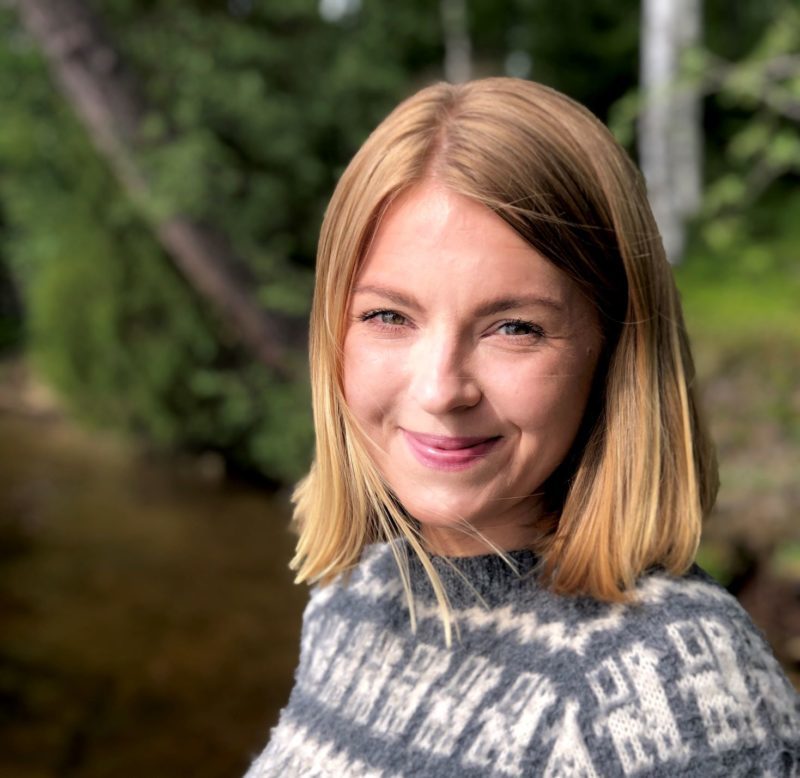The two-day conference brought together experts and researchers of oil spill response and maritime simulator training from the Baltic Sea countries. During the event, simulator-based oil spill response exercises and the opportunities they could offer for improving both national and international preparedness were elaborated.
The international conference organized in Kotka 22.–23.11. examined the results of the SIMREC project (Simulator for Improving Cross-Border Oil Spill Response in Extreme Conditions) and created an overview of future cooperation opportunities. The conference was opened by Research Director Ville Henttu from South-Eastern Finland University of Applied Sciences (Xamk). Henttu brought up the topicality of the project in the current security situation of the Baltic Sea and saw good opportunities for closer international cooperation based on the results. He also estimated that even though increasingly moving away from fossil fuels, the society will not be able to get rid of oil and its transportation in the very near future, thus the project’s results and development work will be relevant for a long time to come.

Towards better preparedness with training, research and international cooperation
Pollution Response Expert Heli Haapasaari from the Finnish Border Guard served as a keynote speaker and commentator of the conference. In her opening speech, Haapasaari described the current status and future development targets of Finland’s oil spill response preparedness. As areas to be developed, she brought up the information needs related to new, greener fuels: their behavior in the sea, collectability and the necessary oil recovery equipment. According to Haapasaari, more attention should also be paid to oil spill response capabilities in challenging environmental conditions.
Haapasaari emphasized the importance of international cooperation in the prevention of oil spills in the Baltic Sea, reminding that it is not realistic to expect any state alone to maintain the level of preparedness that would be required to manage the currently plausible worst-case spill scenario. On the other hand, when planning common preparedness, it is necessary to consider the special conditions of the northern Baltic Sea: the vast majority of oil spill response vessels in the region are such that they cannot operate in ice and thus cannot be relied on in the winter conditions of the northernmost sea areas.
Haapasaari highlighted the importance of oil spill response rehearsals: in terms of oil spill preparedness, training is the only way to strengthen the skills needed, because – fortunately – leakages are so rare that the experience gained through the real-life operations is very limited. Exercises are organized under several umbrellas, for example under Helcom and Copenhagen agreements, and based on bilateral agreements between states. However, resources are limited and Haapasaari saw the need for additional exercises and various research and development projects as significant.
Maritime simulators as additional resources for oil spill response training
In their talks, SIMREC researchers and experts presented the results obtained in the project and the developed solutions for utilizing simulators in oil spill response training. The bridge simulators, jointly owned by Xamk and Ekami vocational school, with their oil spill management and ice navigation functionalities have provided the project with a development and testing environment. The joint report of the SIMREC consortium was also announced at the seminar. The report compiles the main results of the project into a road map of eight recommendations to support the design and organization of effective simulator-based oil spill response training.
Research Director Annukka Lehikoinen from the Kotka Maritime Research Centre (Merikotka) emphasized in her talk how even a small oil spill can have irreversible effects on the sensitive ecosystem of the Baltic Sea. As long as oil is transported and ships use it as fuel, the risk of oil accidents exists. Whether the oil can be recovered at sea or whether it drifts to the shores has a huge impact on the harm and costs resulting from the accident. For this reason, maintaining and developing oil spill response readiness is highly important.
Researcher Ossi Tonteri from the Finnish Environmental Institute (SYKE) had investigated the oil spill response readiness of the Baltic Sea states through a literature review and presented the results of the RETOS™ survey of the Baltic Sea states. It seems there is room for improvement specifically in terms of response training activities in all the analyzed countries. Tonteri suggested that maritime simulators with oil spill response elements could provide a cost-effective option to increase the training activity.
Simulator training is indeed an effective tool for developing oil spill response competency, but it requires the organizers carefully define the target group -specific learning objectives and create plausible exercise scenarios relevant to these objectives. Senior Maritime Lecturer Antti Lanki from Xamk presented the operating model used in the SIMREC project for planning simulator-based exercises. The operating model has been under development at Xamk since 2016. The model is based on a training needs survey and its functionality has been tested in national exercises. Now, in the SIMREC project, the protocol was internationalized.
To develop realistic training scenarios, the SIMREC project used advanced risk modeling technology. Based on a probability calculus using vessel traffic data, a collision involving an oil tanker could be expected to occur in the Gulf of Finland area approximately every 13 years, said Post-doctoral Researcher Liangliang Lu from Aalto University. With the help of the risk analysis model, Lu was also able to show the areas of the highest risk of ship collision-induced oil accidents in the Gulf of Finland sea area and could estimate the most likely leak volumes. This information was utilized in the scenario planning of the simulator exercises organized in the SIMREC project.
Exercises should be systematically observed to evaluate their functionality and, on the other hand, also analyze the performance of the learners. By actively utilizing this information even better exercises can be developed and the additional training needs identified, which enables the development of customized long-term training programs for different groups of operators. Post-doctoral Researcher Mirka Laurila-Pant from the University of Helsinki told the seminar audience about the significance of shared situational awareness in successful crisis management operations and presented a protocol developed in the SIMREC project for observing and analysing its formation during various rehearsals.
Watch a 13-minute film on the project results and an exercise organised in May 2022:
Future prospects for international cooperation
Unit Leader Robert Grundmann from Fraunhofer Center for Maritime Logistics and Services (Fraunhofer CML) told how the European Maritime Simulator Network (EMSN) was established ten years ago and how the activities and opportunities have developed and expanded since then. With the EMSN connection, maritime simulator centers operating in different countries, nowadays even on different continents, can carry out joint exercises in a shared virtual environment. The EMSN connection also served as a channel for the SIMREC exercises. Grundmann also introduced new opportunities for interaction in simulator environment provided by the different types of virtual reality.
The elaboration of cooperation opportunities between simulator centers in the Baltic Sea region in the context of oil spill response was continued with an expert panel involving Grundmann and Lanki, accompanied by Jarmo Kõster, director of the simulator center in the Estonian Maritime Academy under Tallinn University of Technology, and Johanna Salokannel, project manager representing Novia University of Applied Sciences and the Aboa Mare simulator center. The audience and Heli Haapasaari also commented on the discussion.
As a result of the discussion, it can be summed up a number of technical investments would still be needed to organise joint oil spill management exercises by the participating simulator centers, as the simulator center in Kotka is the most advanced in terms of the special functionalities required for such training. On the other hand, it was noted that there are a number of other elements in the spill response management operations that could be practiced using the strengths of each simulator center and educational institution. Such could be, for example, simulations related to multicultural communication or the coordination of oil spill operations. The simulations could also help in designing optimal international field rehearsals, such as the annual Balex Delta exercise.
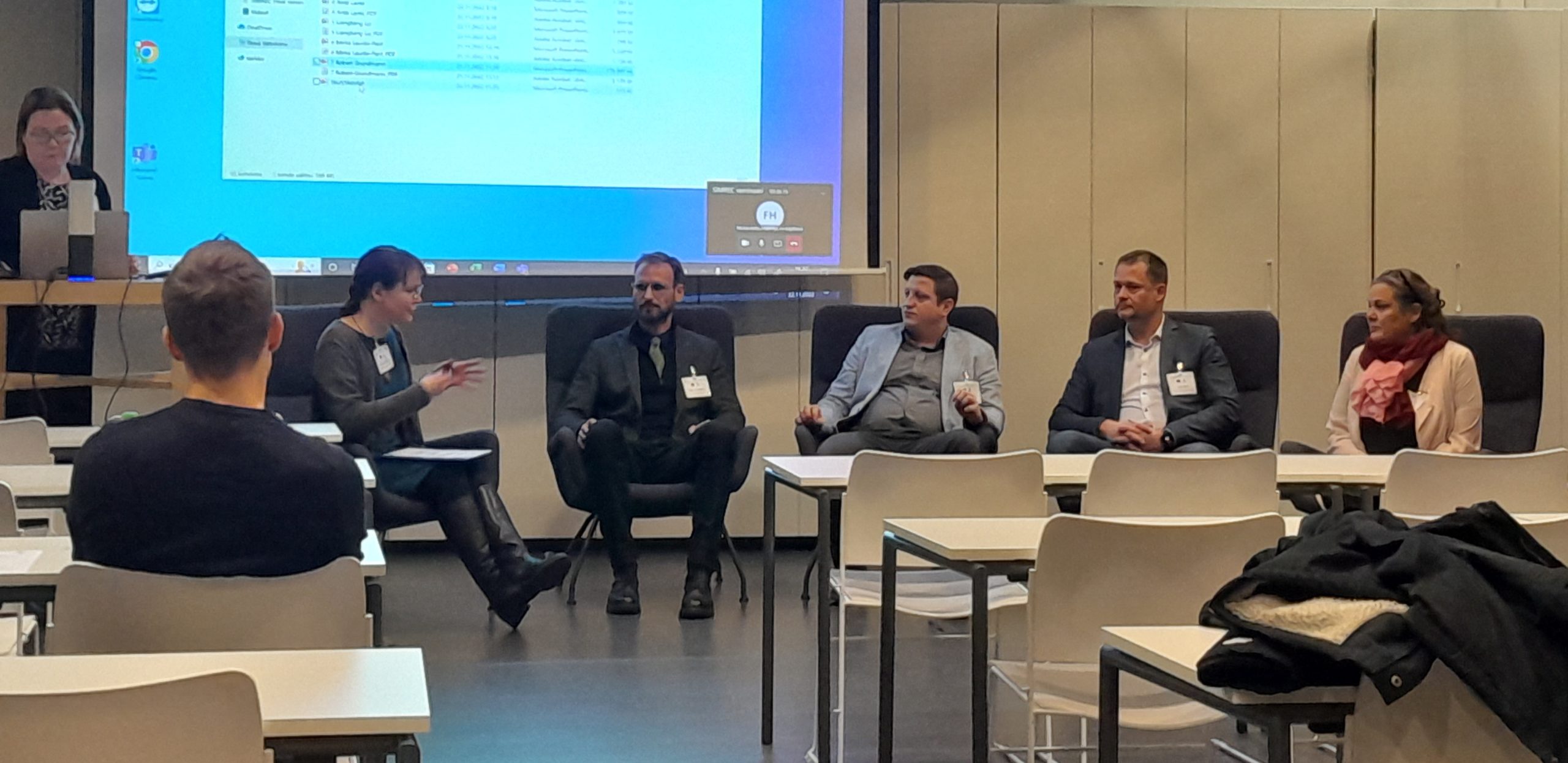
Real-life demonstrations
On the second day of the seminar, Antti Lanki presented the Xamk-Ekami simulator center to the seminar audience and demonstrated a boom deployment and towing exercise in a simulator environment. The center’s bridge simulators simulate relatively realistically the experience of operating oil spill response vessels in varying conditions at sea. In the simulation environment, the vessels can work together, interacting with each other. The in-water behavior of oil and oil booms under different wind conditions and wave heights are represented logically, too. Combined with the real-life communications technology and other operational tools to support the creation of shared situational awareness, bridge simulators appear to provide an effective environment for experimenting and practicing various oil spill response scenarios and tasks.
After a joint lunch, the seminar guests were transported to Finland’s only oil spill response test basin, operated by Xamk. The basin is a former wastewater aeration basin, provided for Xamk’s R&D use by Kymen Vesi Ltd. Facilities have been built to study how different oil types behave in water and can be collected using different collection devices and methods. Research Manager Justiina Halonen together with Project Manager Antero Myrén and R&D Expert Manu Kettunen carried out an oil recovery demonstration to illustrate the properties of marine diesel oil affecting the performance of the oil recovery skimmers. The guests were also provided demonstrations on how new types of fuels behave when spilled on water.

Future plans
As a result of the two-day seminar, it was concluded that it is desirable to maintain the established network of experts and continue the joint development of the initiated ideas. The results of the SIMREC project were seen to be relevant and important even up to the Helcom level. The seminar created an excellent basis for the planning of new joint projects, as manifold needs and opportunities for cooperation and joint development were identified.
Written by Justiina Halonen ja Annukka Lehikoinen. (Translated from a Finnish original version)
Halonen works as a research manager at South-Eastern Finland University of Applied Sciences. Lehikoinen is the research director of the Kotka Maritime Research Centre (Merikotka).

